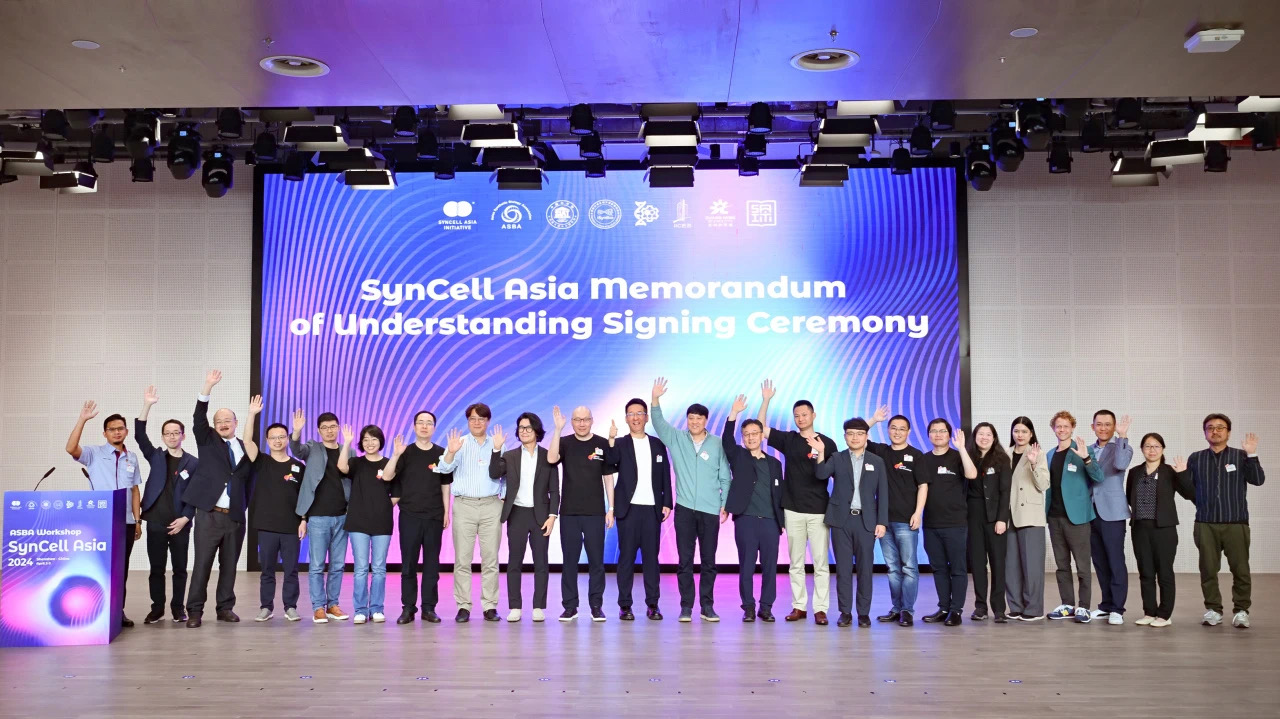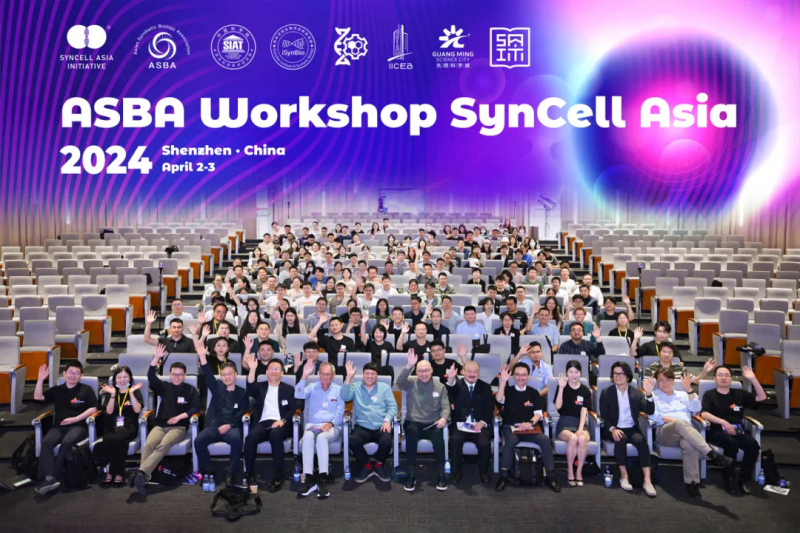Pan-Asian Synthetic Cell Research Memorandum of Understanding: A Framework for Strategic and Open Data Cooperation
Date:22-04-2024 | 【Print】 【close】
At the 2024 Synthetic Cell Asia Workshop held on April 2-3, 2024, the Shenzhen Institute of Advanced Technology (SIAT) under the Chinese Academy of Sciences (CAS) signed a Memorandum of Understanding (MoU) with other 20 institutions from 6 countries. The MoU aims to accelerate and enhance non-commercial research in synthetic biology, particularly focusing on synthetic cells. This collaboration will utilize public-funded biofoundries in respective countries to promote automated and high-throughput research by standardizing and up-scaling the use of computer-aided design software, education, and new workflows.
The various research institutions across Asia have made breakthroughs in synthetic cell research recently, with ongoing studies demonstrating the protocells' ability to mimic basic cellular functions, such as energy regulation, metabolic processes, and cell surface interactions. Other research teams across Asia have leveraged cell-free synthesis for membrane proteins and other metabolically important proteins, providing insight into the inner workings of a functional cell.
Through the establishment of this Pan-Asian collaboration, a concerted approach can be achieved to accelerate conducted research with the aim of generating an artificial cell that carries the minimal biochemical components needed to sustain life.
Additionally, this collaboration is a crucial component of the SynCell Global Initiative that the scientists are actively working to develop from Asia to a global scale, which will include the Build-a-Cell global network and the European Synthetic Cell Initiative.
Prof. LIU Chenli, the Vice Director of SIAT, said that this MoU established a stable foundation for long-term synthetic cell research and fostered interdisciplinary solutions. Asian countries are set to increase cooperation, drawing international institutions and businesses into Asian synthetic biology research.
"Our goal is to tackle synthetic cell challenges, develop cutting-edge technologies, establish international standards," said LIU, "and achieve major breakthroughs in single-cell life synthesis."
During the workshop, 25 scientists from China, Japan, South Korea, Malaysia, Singapore, and Thailand gathered to share their latest findings and ideas through presentations and round-table discussions. This workshop was co-organized by SIAT and the Asian Synthetic Biology Association (ASBA).

Signing Ceremony. (Image by SIAT)

On-site Group Photo of the workshop. (Image by SIAT)
Media Contact:
ZHANG Xiaomin
Email:xm.zhang@siat.ac.cn